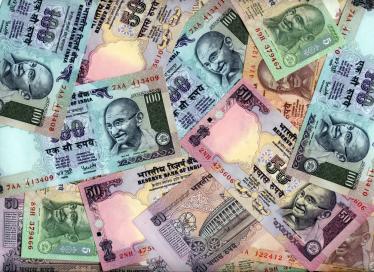 Bangalore, May 3: As recoveries and seizures of counterfeit currency notes by various agencies continue in big numbers in South India, Mysore and Kochi will become first two cities in the country to have plastic/polymer currency notes of Rs 10 denomination in circulation, in line with the Centre’s initiative.
Bangalore, May 3: As recoveries and seizures of counterfeit currency notes by various agencies continue in big numbers in South India, Mysore and Kochi will become first two cities in the country to have plastic/polymer currency notes of Rs 10 denomination in circulation, in line with the Centre’s initiative.
One of the objectives of the move is to tackle the counterfeit currency menace, the Union Finance Ministry and the RBI have maintained.
Mysore and Kochi are among five Indian cities where the Centre has decided to introduce such notes on a trial basis. The government plans to introduce one billion pieces of Rs 10 notes in Jaipur, Bhubaneswar and Shimla apart from these two.
Although authorities maintain that the selection of the cities will help test such notes in varied geographical locations and climatic conditions, the move will be India’s latest in tackling the fake note problem, which, investigations in the past have revealed, are being used to fund terror groups among other anti-national activities.
And South India is slowly becoming a major centre for smuggling of such notes.
Going by statistics from the National Crimes Record Bureau , 6,386 notes of Rs 1,000, 12,226 notes of Rs 500, 1,247 notes of Rs 100 and 1,057 notes of Rs 50 and one note of other denominations have been seized in Karnataka, from January 1, 2012, to December 31, 2012. The total face value of the notes stands at Rs 1,26,76,560.
During the same time, the face value of fake currency notes recovered and seized in Kerala stood at Rs 29,09,300, while it was Rs 1,97,81,910 in AP and Rs 2,54,25,005 in Tamil Nadu. (See table for statistics from Jan 1, 2010 to Dec 31, 2012 of all the four states).
Although the number of counterfeit notes of Rs 10 denomination is not negligible compared to Rs 1,000, Rs 500, Rs 100 and Rs 50, the pilot project is restricted to Rs 10. Sources, however, said plans to introduce notes of higher denomination is being considered.
Globally, countries like Australia and New Zealand have opted for such notes to counter fake currency notes, and India will join this club once the project kicks off, the source said.
RBI spokesperson Alpana Killawala told Deccan Herald, “We have already floated tenders in this regard but no other details can be discussed at this juncture.”
On whether the RBI has fixed any timeline to begin the project, she said: “There are a lot of external factors that have to be taken into consideration, we cannot arbitrarily set deadlines. We are taking the process forward, it will be complete when it is.”
The sources said the RBI has sought interested manufacturers of polymer banknotes submit their expression of interest and expected to submit specifications of the substrate along with 500 pieces of sample banknotes printed on the proposed substrate.
The sample banknotes should be serially numbered, distinguishable, prominently marked “SAMPLE” across the face and carry the applicant’s name in indelible ink.





Comments
Add new comment